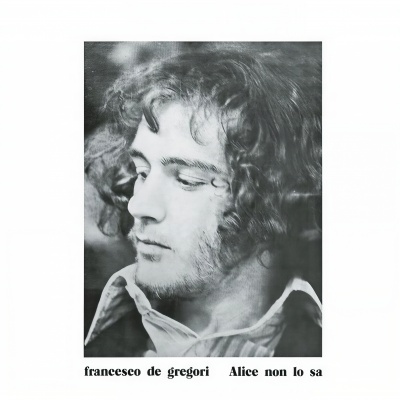
Alice Non Lo Sa
Francesco de Gregori's first official release was Theorius Campus, a curious concoction split between early songs by De Gregori and fellow Roman songwriter Antonello Venditti. Yet for all intents and purposes, 1973's Alice Non Lo Sa should be considered De Gregori's debut album. This is the first collection of songs written entirely by De Gregori, and the clear expression of a coherent project conceived by a single creative mind. It also already sounds like any of his great '70s albums. While arguably only the title track has become a classic, at least half the album deserved the same fate: "La Casa di Hilde," "1940," "Suonatori di Flauto," "Il Ragazzo," or "Irene," to mention but a few, are all little-known gems. Musically, the piano and strings arrangements are a bit anonymous, while the acoustic guitar-driven numbers reveal the influence of Leonard Cohen, most tellingly in "Marianna al Bivio," that also includes references to the characters of both "Suzanne" and "So Long, Marianne." This is clearly a songwriter's effort, with lyrics taking center stage. Everything becomes subordinate to De Gregori's shy, soft spoken voice and his enigmatic cast of characters and literate wordplay the true stars of the album ? but also the reasons for the relative commercial and critical failure of Alice Non Lo Sa. De Gregori was criticized for the hermetic character of his lyrics, and for his refusal to be openly political or personal, something that was required of Italian songwriters at the time. Instead, De Gregori experimented with multiple characters and narrative perspectives inside a song, intertextuality, and unresolved allegories. It is precisely this complexity and ambiguity that almost 40 years later keeps the album so compelling in its depiction of a strange, poetic society of outsiders, losers, and minor characters of history. A fascinating album.
